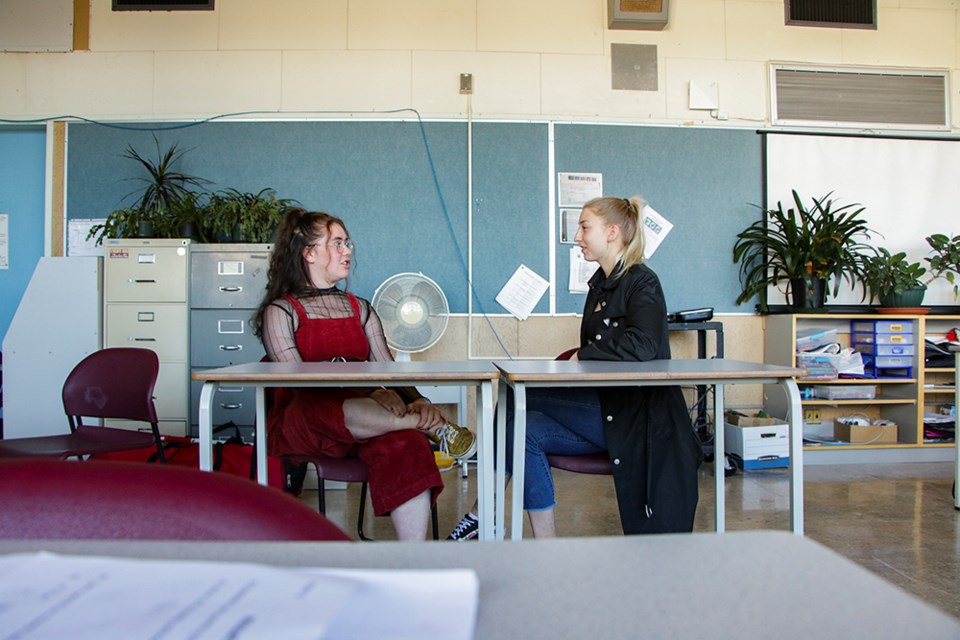Politicians and Gen Z are not engaging with one another as much as they could as Canada’s 43rd election looms, according to a pair of New Westminster Secondary School students.
But lowering the voting age to 16, a proposal by both the NDP and the Greens, would go a long way to help connect those two dots, said Grade 11 students Jane Lloyd and Marissa Myhre in a conversation with the Record about the current election.
As it stands, both Myhre and Lloyd said they don’t feel heard by politicians, even with the younger-than-usual set of party leaders – Conservative and NDP leaders Andrew Scheer and Jagmeet Singh are both 40, while Liberal Leader Justin Trudeau is 47.
Lloyd, who said she is rooting for the NDP, took aim at Prime Minister Trudeau’s participation in the September climate strike in Montreal.
“I think it’s really stupid that Justin Trudeau walked in the Montreal strike, saying he supports these kids. But you’re the guy in charge; if you support them so much, why aren’t you changing your policies?” Lloyd said.
“The stuff they say about Greta Thunberg,” she added, referencing the 16-year-old Swedish activist who inspired the global climate strikes, “the rich, old guys saying ‘shut up; you’re just a kid.’ But she knows more than they do.”
Myhre said being young “shouldn’t mean that you’re less knowledgeable” – in fact, she argues the opposite.
“Frankly, the students today know more than the adults just because they’re currently learning. They haven’t been learning for years; our parents, they haven’t been in school for 20 years, whereas we’re currently in school,” Myhre said.
Students today, she said, are learning about Canadian politics and current affairs everyday in classes like social studies.
While 16- and 17-year-olds have their whole lives ahead of them, older generations will not have to live as long with the consequences of their electoral decisions, such as the effects of climate change-related policies, Lloyd added.
Federally speaking, Lloyd said Indigenous rights and the environment are two of the issues most important to her. Provincially, she pointed to health care and schools, saying it “took so many years for (NWSS) to be rebuilt.”
“There’s lead in the pipes, the school’s falling apart, and it took them so many years to even give us the opportunity,” she said.
Myhre spoke more provincially, pointing to mental health in the province.
“The waiting lists, they’re six months long,” she said, adding that she doesn’t see enough on offer for students struggling with addictions, even as the province grapples with an overdose crisis.



